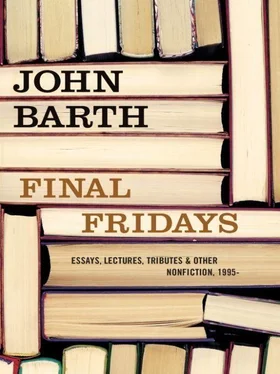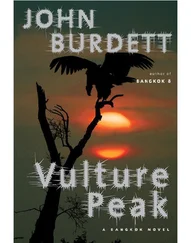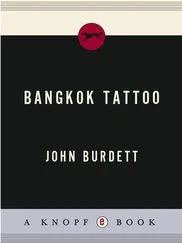Got that, John? (Not every neuroscientist, I should add, agrees with Professor Dennett that human consciousness has evolved to be essentially a scenario-making machine; but we storytellers are likely to nod Yes to that proposition — always allowing for the venerable device of the Unreliable Narrator.)
I conclude this first category of my fellow scribblers’ wisdom-pearls with the grand declaration made by Richard Brautigan at the close of his “reading” at SUNY/ Buffalo toward the end of the high 1960s. The author of Trout Fishing in America, The Revenge of the Lawn , and In Watermelon Sugar was at the peak of his literary fame then, a hippie icon warmly received on a campus that prided itself, in those years of anti-war sit-ins and tear-gassing riot police, on being “the Berkeley of the East,” and various doomsayers were declaring the print medium moribund in the “electronic global village.” In that spirit, after my introduction, Brautigan said hello to the packed hall, pushed the Play button on an old reel-to-reel tape recorder beside the lectern, and disappeared into the auditorium’s projection booth, from where — as we-all sat for a very long three-quarters of an hour listening to our guest’s recorded reading — the invisible author projected slides of giant punctuation-marks: five or ten minutes each of a comma, a semicolon, a period, entirely without bearing on the taped recitation. Had it been anybody but Brautigan, that audience would never have sat still for it — but still we sat, until when the eye-glazing hour was done at last, the shaggy, beaming author reappeared from the projection booth, gestured grandly toward the tape machine, and declared, “There you have it, folks: the Twentieth Century!” Whereat one of my seriously avant-garde graduate students sitting nearby turned to me and muttered “Yup: about 1913.”
ON TO MY second category: visiting writers’ obiter dicta to which I readily nod assent and find myself often quoting, but not without some amplification or qualification. I like Dylan Thomas’s (sober, but playful) assertion, for example, that “all trees are oak trees — except pine trees”: It serves to remind early-apprentice writers especially that to say Patsy paused under a tree or Just then Fred’s car zipped by is almost always less effective than specifying what sort of tree and automobile were involved — specificity being one component of sensory texture, and sensory texture being usually a literary plus (but not invariably, I remind them: Don’t forget Beckett). Whence one goes on to suggest — they having in revision paused Patsy under a Norway maple and zipped Fred into a milk-white Camaro — that it were well if those specifications turned out to be not only specific, but relevant . Why a Norway maple instead of a weeping birch? Why a “milk-white Camaro” (Mary Robison) instead of a “gamboge Cadillac” (Frederick Barthelme) or a “high, rat-colored car” (Flannery O’Connor, the mother of automotive specificity in American literature)?
Into this same middle category go the contradictory recommendations of Joseph Heller and E. L. Doctorow regarding dramaturgical advance planning. Heller declared to our seminar that he always wrote his novels’ closing chapters first: How would he know how to get there, he asked rhetorically, if he didn’t know where he was going? Mind you, he went on, these first-draft last chapters were proposals, not binding contracts; by the time he re-reached them, small or large changes might well be in order. But he could no more begin a novel without knowing how he meant to end it than he could launch into a joke without knowing its punch line. Doctorow, on the contrary (not in my seminar, but in one of his at Sarah Lawrence College decades ago, whence one of his students later came to us and retold the tale when I retold Heller’s) is alleged to have said that a novelist “needn’t see beyond [his] headlights”—which I take to mean that knowing the direction of the next plot-turn is navigational data enough; that bridges farther down the road may be crossed when one arrives at them. All very well, perhaps, I warned my seminarians, for a veteran professional like Doctorow with doubtless well-established work habits and seasoned intuitions, but dangerous advice indeed for apprentice novelists, a fair number of whom I’ve seen write themselves into all but inextricable cul-de-sacs. Something between Doctorow’s improvisatory insouciance and Heller’s to-me-unimaginably-detailed advance planning is probably soundest for most of us yarn-spinners: The aforecriticized John Gardner — by all reports a first-rate coach despite his wrongheadedness, by my lights, in certain areas — wisely observes (in his treatise On Becoming a Novelist ) that most novels culminate in some sort of all-hands-on-deck Big Scene, and that it were well for the author to have at least some advance notion of that scene’s lineaments. Something may be said for putting off the crossing of bridges until one reaches them, but it helps to know ahead of time that there’s a bridge or two to be crossed, and whether it looks to be a footbridge or the Golden Gate.
I’VE SAVED FOR last that first category of authorial obiter dicta: observations about writing made by visiting authors that I find myself quoting without need of comment. With a sigh I recall a reluctant, taciturn, and very weary-looking John Dos Passos in Hopkins’s Gilman Hall back in the early 1950s (he lived nearby then, a widower saddened further by the indignation of many liberals at what they saw as his turncoat right-wingery during the McCarthy era) warning us starry-eyed aspirants that writing was “a bad job.” More cheering was Norman Mailer’s reply when I reported to him, two decades later, Dos Passos’s gloomy remark: “Granted, the pay’s not so hot — but you can’t beat the hours.” Mailer, by the way, when he visited us at Buffalo just after publishing Why Are We in Vietnam? , preferred not to be introduced at all: At his request, we sparred or shadow-boxed or something for a few seconds in the lobby of the auditorium — my first and only experience of that alarming exercise — and then he sprang to the podium and introduced himself.
I like to repeat too Larry McMurtry’s declaration (back at Hopkins again) that the reason he got along well during his Hollywood scriptwriting period was that he didn’t give a damn whether his screenplays were finally produced or not, as long as he got paid; the main purpose of screenplays anyhow, he declared, is to give the producer some idea of how many locations are involved, for budget-and-logistical purposes. Stanley Elkin, too, after a stint in LaLa-Land, waxed eloquent on the inferior status of words in film as opposed to prose fiction: We writer-types, he said, are in the habit of thinking that stories are told with lines like Proust’s “For a long time I went to bed early,” or Joyce’s “Stately, plump Buck Mulligan. . ” Movies, on the other hand, said Elkin, tell stories this way — and he launched into hilarious extended wordless sound-effects: car screeching to a halt, doors slamming, footsteps approaching, other obscure but portentous noises…. Not easy for a wordsmith to adjust to.
Then there’s William H. Gass’s memorable response to a student who asked him whether a writer’s first concern ought to be the reader’s pleasure or the author’s. Neither, Gass replied: To put the reader’s pleasure first is pandering; to put the author’s pleasure first is self-indulgence. A writer’s first concern, he declared, ought to be for the verbal artifact that’s trying, with the writer’s collaboration, to get itself said. The author as midwife: I like that.
Ditto the so-prolific John Updike’s response to my student who asked him. . I don’t recall exactly what; perhaps whether he had ever abandoned a project-in-the-works, for Updike’s reply was to the effect that now and then he would set aside a fiction-in-progress because he didn’t recognize its author as (quoting Updike) “nimble old me.” Nimble , yes: That’s him, for sure, a self-assessment as modest as it is exact. Likewise James Michener’s response to the student who asked him what he regarded as his major strength and his most serious weakness as a novelist. The former, Michener replied unhesitatingly, was information : Whether writing about Iberia, Texas, Poland, or Outer Space, he prided himself on doing his homework. And his major weakness? “Human psychology,” confessed our visitor with a smile and a shrug: “Don’t know the first thing about it.”
Читать дальше












